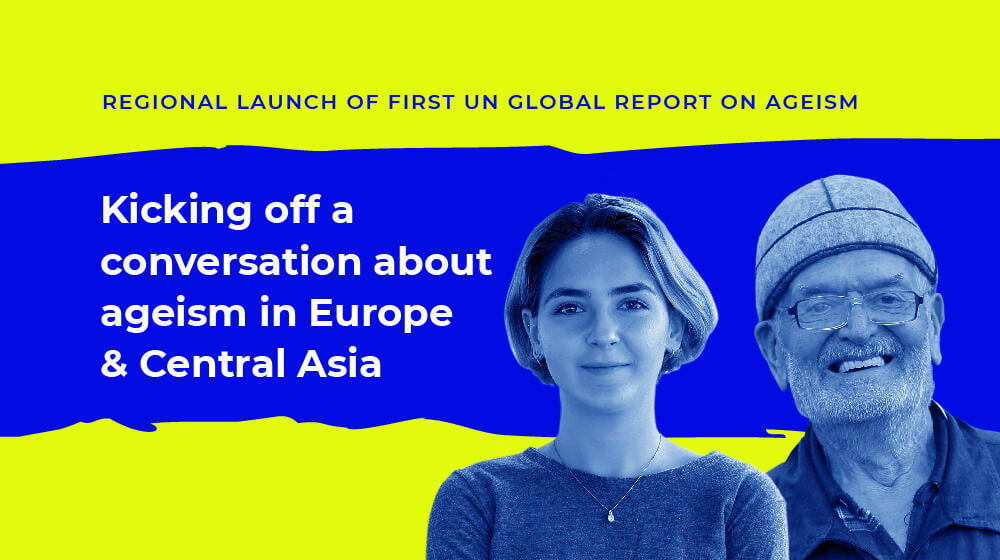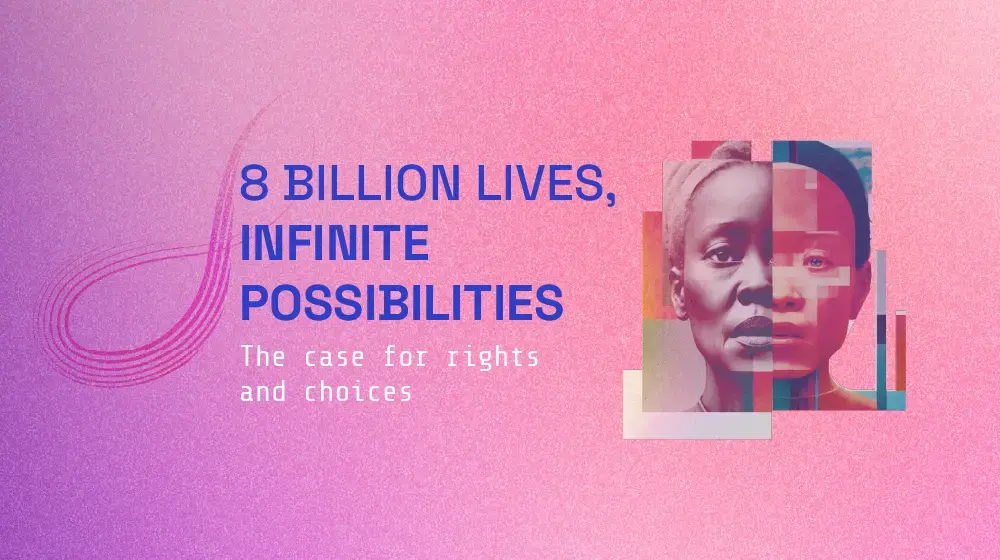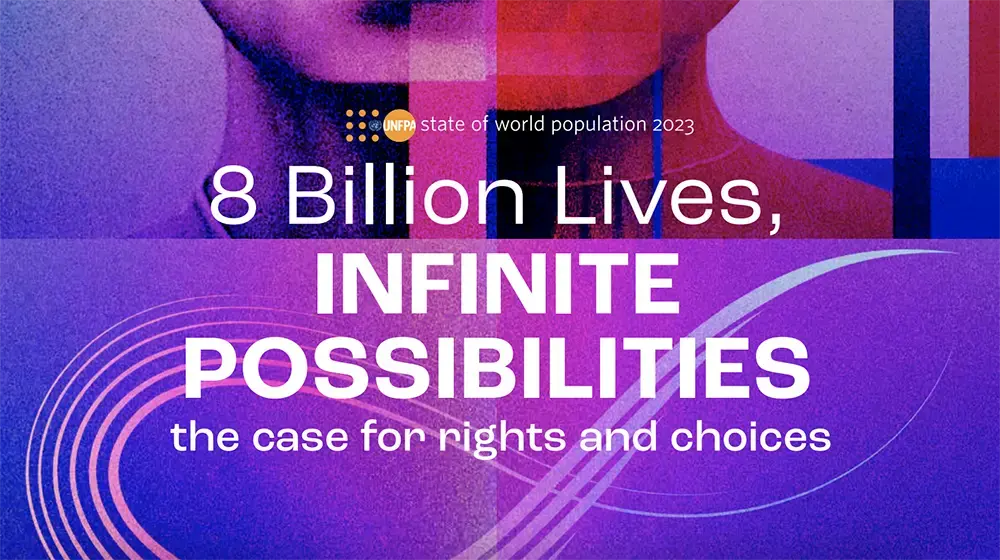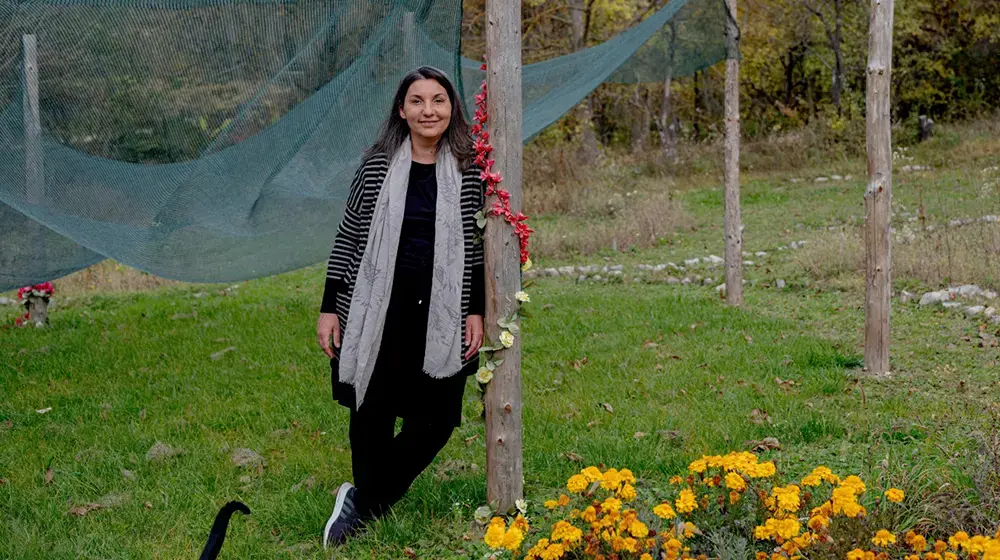BELGRADE, 27 September 2021 - One in three people in Europe, both young and old, reports having been a target of ageism, a phenomenon more pervasive than racism and sexism in this region, according to the first Global United Nations Report on Ageism, which had its Europe launch organized by WHO, UNFPA and the Government of Serbia in Belgrade today.
The report, released globally earlier this year, says that every second person in the world is believed to hold ageist attitudes – leading to poorer physical and mental health and reduced quality of life for older persons, and costing societies billions of dollars each year.
Among EU countries, perceptions of discrimination against older people are particularly high in the Eastern part of the bloc, with over 60 percent of people in Bulgaria, Czech Republic, Hungary and Romania reporting widespread or fairly widespread discrimination.
“Ageism robs millions of people in Europe of opportunities to fulfil their potential,” said Alanna Armitage, UNFPA Regional Director for Eastern Europe and Central Asia. “It also prevents countries in the region from dealing with the rapid demographic change they are undergoing. We simply cannot afford to let age-based discrimination exclude large parts of the population from contributing to public life and the economy.”
The report, published by the World Health Organization (WHO), Office of the High Commissioner for Human Rights (OHCHR), United Nations Department of Economic and Social Affairs (UN DESA) and the United Nations Population Fund (UNFPA), calls for urgent action to combat ageism and better measurement and reporting to expose ageism in its full scope and impact.
“The pandemic has presented the opportunity for positive initiatives including the development of online information for older adults, campaigns conducted about the mental health of older people, as well as the development of digital technologies and support which have helped older people to communicate during confinement,” said WHO/Europe Regional Director, Dr Hans Henri P. Kluge. “Combatting ageism has to be an integral part of COVID-19 recovery for WHO European Member States. It’s time to stamp out age-based discrimination, in practice and policy.”
“Serbia has one of Europe’s oldest populations, and the percentage of older people is expected to grow further. Many older people’s lives are determined by stereotypes and prejudices, undermining their dignity and leaving them on the social margins,” said Gordana Čomić, Minister of Human and Minority Rights and Social Dialogue. “At the same time, in a society burdened with traditional views, the younger population is also often excluded from social processes -- made to ‘wait for their time’ they are prevented from maturing and becoming full and active participants in society.”
Intergenerational solidarity, which implies empathy, understanding and respect for the individual leads to a responsible society in which there is room for all citizens, and its importance is especially evident during the epidemic COVID 19. Therefore, the motto of the Ministry that protects and promotes human rights today's gathering is: Social, economic and political inclusion of all members of society and a dignified life, regardless of age.
Older adults are often disadvantaged in the workplace, with access to specialized training and education declining significantly with age.
Ageism against younger people manifests across many areas such as employment, health, housing and politics where younger people’s voices are often denied or dismissed. In Europe, the only region for which data are available, attitudes towards younger people are often more negative than they are towards older people, and younger people report experiencing more aged-based discrimination than any other age group.
Ageism has serious and wide-ranging consequences for people’s health, well-being and human rights. Among older people, ageism is associated with poorer physical and mental health, increased social isolation and loneliness, greater financial insecurity, decreased quality of life and premature death. An estimated 6.3 million cases of depression globally are estimated to be attributable to ageism. It intersects and exacerbates other forms of bias and disadvantage including those related to sex, race and disability leading to a negative impact on people’s health and well-being.
The report notes that policies and laws that address ageism, educational activities that enhance empathy and dispel misconceptions, and intergenerational activities that reduce prejudice all help decrease ageism.
All countries and stakeholders are encouraged to use evidence-based strategies, improve data collection and research and work together to build a movement to change how we think, feel and act towards age and ageing, and to advance progress on the UN Decade of Healthy Ageing.
Related links
-Global press release and note to editors
-UNFPA/WHO/UNECE/OHCHR and HelpAge International Joint Regional Programme on Rights, Health and Dignity of Older Persons
-UNFPA Regional Demographic Resilience Programme
-WHO Regional Office for Europe European Programme of Work – ‘United Action for Better Health in Europe’
-United Nations Decade of Healthy Ageing
The World Health Organization (WHO) provides global leadership in public health within the United Nations system. Founded in 1948, WHO works with 194 Member States, across six regions and from more than 150 offices, to promote health, keep the world safe and serve the vulnerable. Our goal for 2019-2023 is to ensure that a billion more people have universal health coverage, to protect a billion more people from health emergencies, and provide a further billion people with better health and wellbeing. For more information about WHO, visit www.who.int. Follow WHO on Twitter and Facebook.
The United Nations Population Fund (UNFPA) works to deliver a world where every pregnancy is wanted, every childbirth is safe and every young person's potential is fulfilled. In Europe and Central Asia, UNFPA also assists countries in strengthening their resilience to the population dynamics they are facing, mitigating negative effects and capitalizing on the opportunities demographic change also brings.





